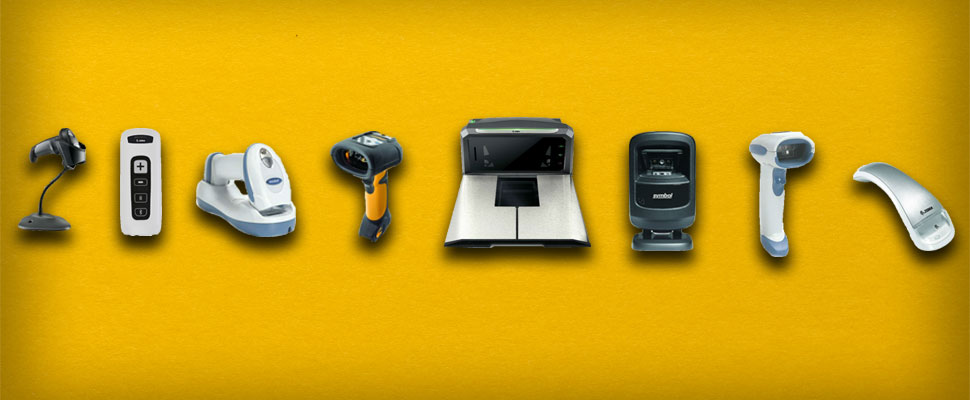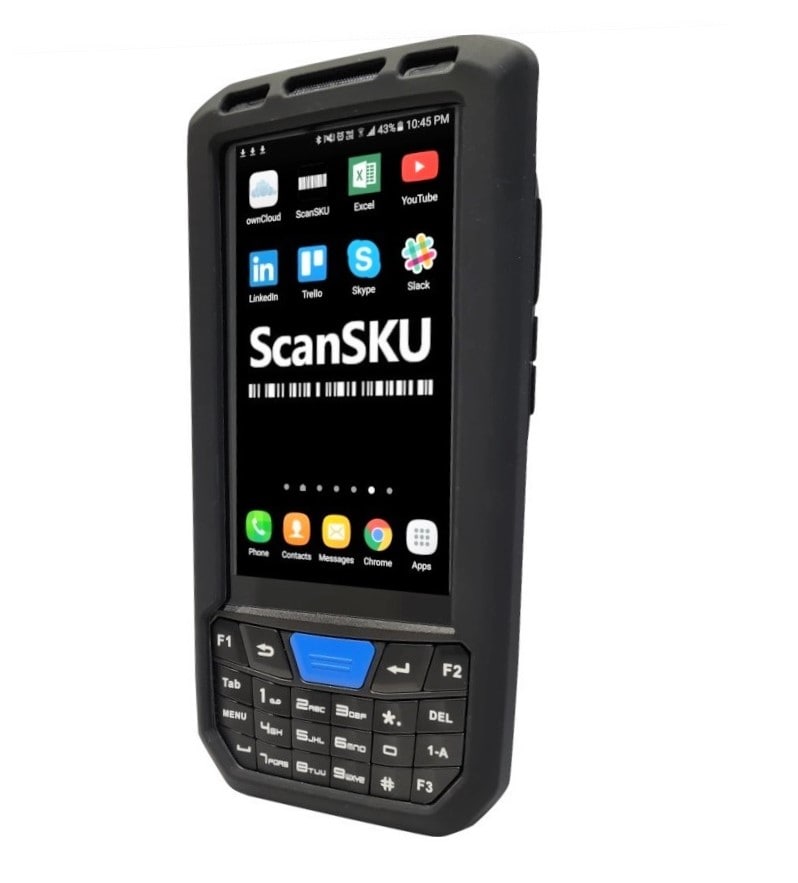Selecting the Right Barcode Scanner for Your Service Requirements
Picking the suitable barcode scanner for your service calls for a nuanced understanding of your particular functional demands and environmental conditions. Elements such as scanner type, speed, and compatibility with existing systems play a pivotal function in establishing the ideal option.
Recognizing Barcode Scanner Types
When it involves selecting a barcode scanner, comprehending the different types readily available is essential for conference details service requirements. Barcode scanners can be categorized into a number of kinds, each designed for different applications and settings.
Handheld scanners are the most typical, supplying mobility and simplicity of usage, making them ideal for retail and inventory management. They commonly attach via USB or Bluetooth, giving adaptability in operation. Fixed-mount scanners, on the other hand, are created for high-volume scanning applications, commonly discovered in production line or checkout counters. These scanners are placed in a stationary position, permitting for rapid scanning of multiple items one by one.
An additional kind is the mobile computer, which integrates scanning abilities with computing power. These devices are ideal for field procedures or storehouse management, allowing information collection and real-time supply monitoring. Additionally, there are commercial scanners that are built to stand up to extreme settings, such as severe temperatures or exposure to dirt and dampness.

Key Features to Think About
What important functions should services focus on when picking a barcode scanner? Primarily, scanning speed is critical, as faster scanners boost operational efficiency, especially in high-volume settings. The scanner's capability to read various barcode styles is likewise crucial; guarantee it supports popular types like QR codes, UPC, and Code 128 to fit varied supply things.
Sturdiness is another vital feature, specifically for services in rugged settings. Try to find models that are developed to stand up to decreases, dirt, and moisture. In addition, think about the connectivity alternatives available; whether you prefer USB, Bluetooth, or Wi-Fi, the appropriate connection can improve combination with existing systems.

Assessing Your Service Setting
To effectively pick a barcode scanner, companies need to analyze their particular functional environment. This assessment consists of evaluating the physical layout of the work area, the nature of the items being checked, and the typical problems under which scanning takes place. For instance, a retail environment might require portable scanners that can promptly refine transactions at the checkout, while a warehouse setting might profit from ruggedized scanners designed to endure harsher problems.
In addition, consider the quantity of scanning required. High-throughput settings might demand innovative scanning technologies, such as fixed-position scanners or smart phones that can operate efficiently in fast-paced scenarios. The combination have a peek at this site abilities with existing supply administration systems also play a crucial function; make certain the selected scanner can effortlessly get in touch with software systems in operation.
Furthermore, analyze the potential for growth and scalability. A scanner that meets current needs might not be sufficient as company expands. By extensively analyzing these Read Full Report variables, services can select a barcode scanner that not just satisfies immediate needs yet additionally sustains long-lasting operational efficiency and flexibility. This critical method inevitably adds to smoother procedures and boosted performance.
Budgeting for Your Scanner
Having examined the functional environment and identified the certain needs for a barcode scanner, the following action entails cautious budgeting to make sure a smart economic investment. Developing a spending plan starts with figuring out the total prices connected with the scanner, including preliminary purchase price, operational costs, and possible upkeep costs.
When choosing a barcode scanner, think about the range of offered alternatives, from portable gadgets to fixed-position scanners, as prices can differ significantly. It is necessary to balance cost with functionality; choosing an extra budget friendly design might cause boosted functional inefficiencies if it does not satisfy your business demands.
In enhancement to the hardware, consider costs related to software, training, and potential upgrades. While it may be appealing to decrease in advance expense, investing in a top quality scanner that lines up with your functional requirements can view it now produce long-lasting financial savings through enhanced effectiveness and reduced downtime.
Finally, consider the overall cost of possession, which encompasses the scanner's life expectancy and potential resale value. By thoroughly preparing your budget plan, you can guarantee that your financial investment in a barcode scanner will certainly boost your operational performance and financial performance.
Assimilation With Existing Solution
Integrating a barcode scanner with your existing systems is crucial for maximizing its performance and making sure smooth procedures. barcodes scanners. A well-integrated scanner boosts workflow performance, decreases errors, and accelerates data processing. When picking a barcode scanner, consider compatibility with your existing software application and hardware framework, including your inventory monitoring systems, point-of-sale (POS) systems, and enterprise source preparation (ERP) solutions
Examine whether the scanner uses basic methods such as USB, Bluetooth, or Wi-Fi, which can facilitate very easy assimilation. Furthermore, analyze whether the scanner's software application offers APIs or SDKs that permit modification and assimilation with proprietary systems. This is especially essential for companies with distinct functional requirements.
As your business expands, your systems need to be able to suit extra scanners and take care of raised information quantities without substantial reconfiguration. Ultimately, spending in a barcode scanner that perfectly integrates with your existing systems will produce long-lasting advantages, improving precision, effectiveness, and overall productivity within your procedures.

Verdict
To conclude, choosing an appropriate barcode scanner requires a comprehensive analysis of various elements, consisting of scanner kinds, important functions, and the certain business environment. Appropriate budgeting for both procurement and functional prices is essential, alongside making sure compatibility with existing systems. By diligently taking into consideration these aspects, services can enhance effectiveness and performance, ultimately leading to improved operational results. The best barcode scanner works as an important device in streamlining procedures and promoting effective stock management.